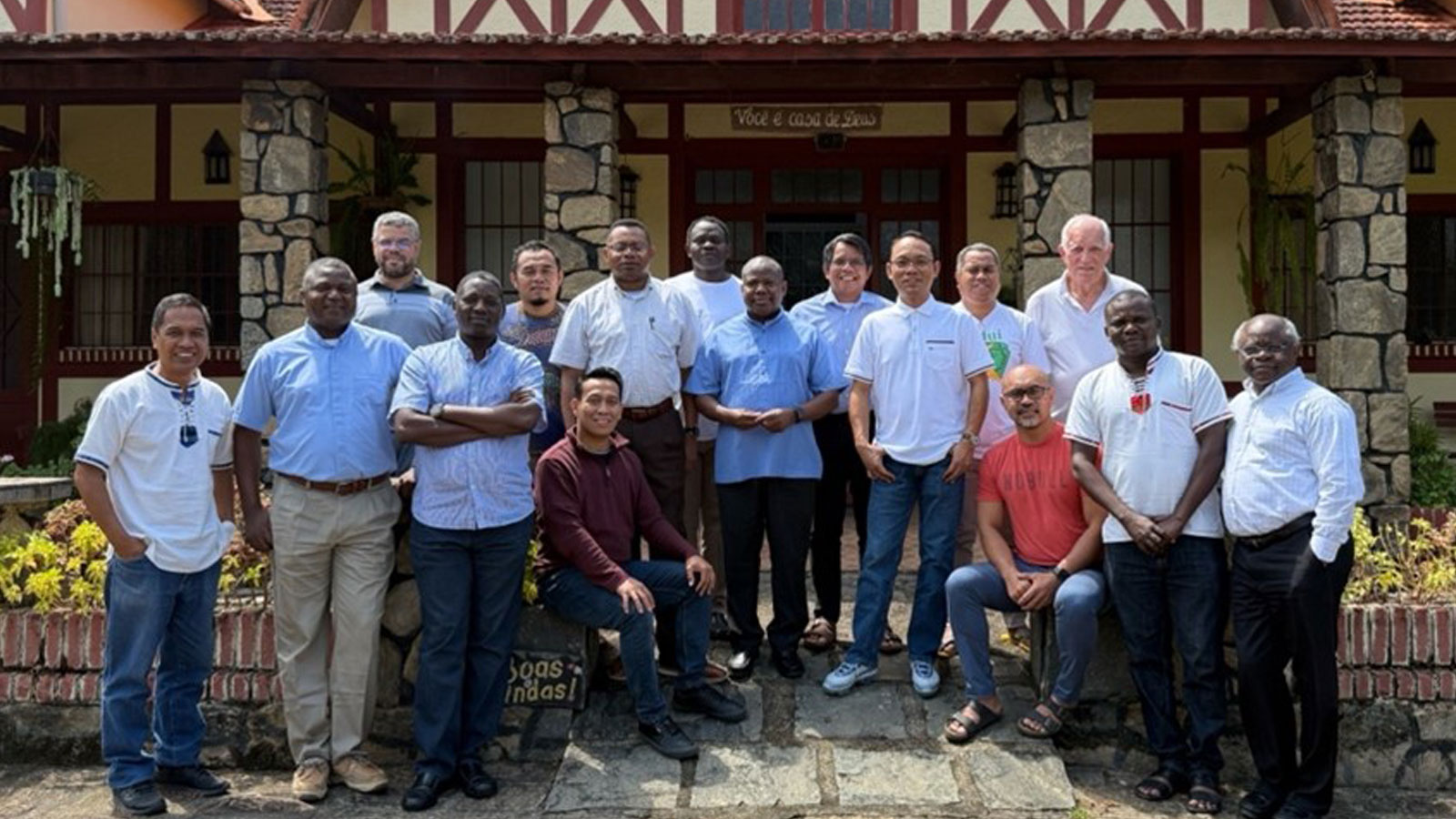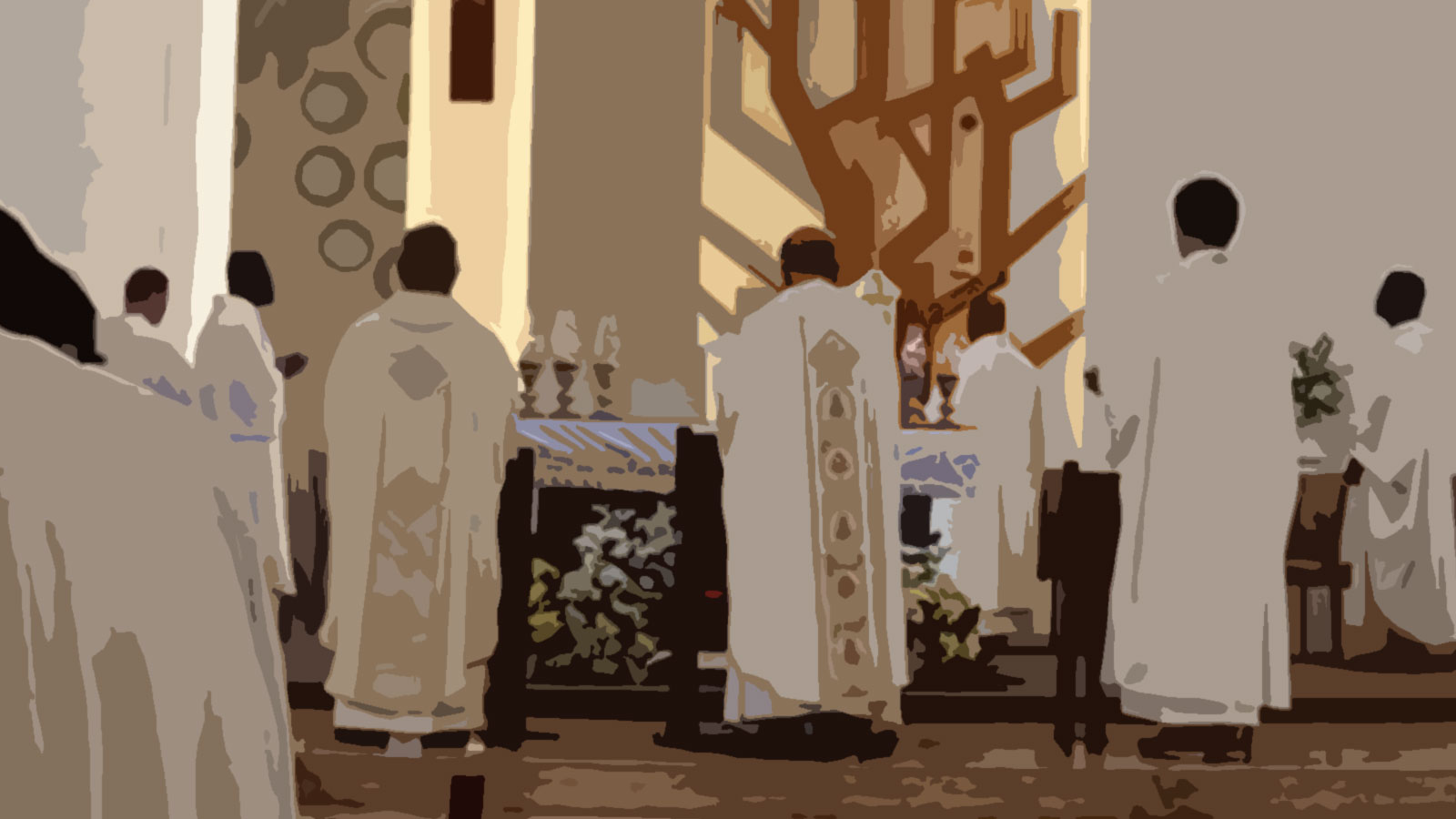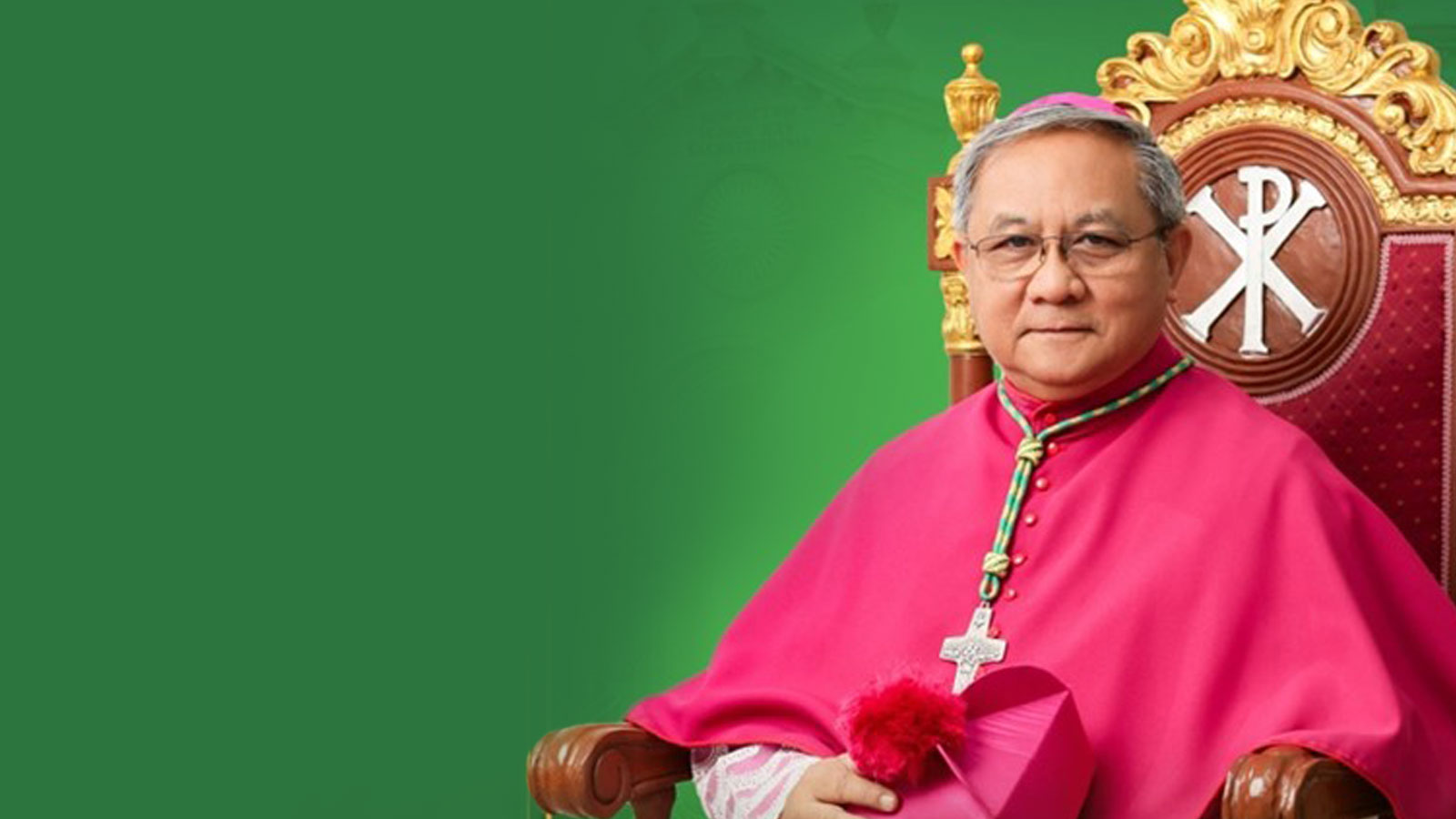 by Charles Phukuta, cicm
by Charles Phukuta, cicm
Superior General
Dear Confreres working in Japan and in the Province of Asia,
Congratulations on reaching an extraordinary milestone - 75 years of dedicated missionary presence in Japan! This is an exceptional moment to reflect on the incredible journey you have undertaken, the lives you have touched, and the profound impact you have made in the Land of the Rising Sun. I am delighted to join all of you in thanking God for the 75th anniversary of the CICM presence in Japan. I truly wanted to be personally present at this special celebration. Still, I am obliged to attend the Assembly of the Union of Superiors General, which falls on the exact date of your celebration. I know our confrere André De Bleeker, General Archivist, will represent me validly.
In 1946, Mgr. Paul Yoshigoro Taguchi, Bishop of Osaka, who got to know CICM in China and the Philippines during the war, asked the General Government to take over part of his diocese, namely, the greater part of the Hyogo Prefecture. In the whole region, there was only one small old church situated in Aioi. There were a few Christians living in Himeji and in the north of the prefecture. At that time, Japan was still recovering from the ravages of the Second World War and the horrific effects of the two atomic bombs dropped on the cities of Hiroshima and Nagasaki. The mission would provide spiritual support and assistance to the Japanese people during these challenging times.
The General Chapter of 1947 decided to accept the proposal of Bishop Taguchi. On May 8th, 1948, the founding fathers Jozef Jennes and Jozef Spae arrived in Yokohama and set foot on Japanese soil. Many more confreres will follow. With unflinching enthusiasm, Father Spae started his missionary engagement in Himeji and surroundings. Towards the end of 1949, 57 adults had already received baptism. Our CICM presence would grow over the years to spread to the dioceses of Hiroshima, Nagasaki, Tokyo, and more recently to Sendai in the north.
Initially, the confreres who came to the fledgling mission of Japan were Belgian missionaries expelled from China. Later, young Belgian and Dutch confreres would be assigned. In the 1980s, Congolese and Filipino confreres were assigned to Japan, and today, our mission in Japan is an international community of Belgian, Congolese, Filipino, and Indonesian confreres. Recently, a Brazilian intern has come to join the mission, and a Chinese confrere is on his way, making our mission in Japan even more international. We are also proud that we have one Japanese confrere in our midst who retired in Japan after having been a missionary in the Philippines.
The Congregation can be proud of the work of the confreres in Japan. One way the confreres came into contact with the student world was by teaching English or French in private or public schools. Quite often, they were able to teach culture, philosophy, and religion. All this contributed to the spread of Christian values. By starting kindergartens, they made contact with parents and children and instilled religious values at a very early age.
In the 1950s, Father Jozef Spae was able to realize a long-cherished dream, the foundation of a study center. This was the beginning of the Oriens Institute for Religious Research, which would publish the Missionary Bulletin and look after other publications. In the years after Vatican II, Oriens played an essential role in bringing about the aggiornamento and deepening of the faith via writings and discussion groups, especially among the non-Japanese missionary priests and sisters. Oriens also promoted ecumenism and made first contacts with other religious traditions. While Oriens would limit itself to the missiological and pastoral aspect in its contact with other religions, the Nanzan Centre would concentrate on its academic level. In 1985, the Japan Missionary Bulletin, which until then was published partly in Japanese and partly in English, was split into the Japanese monthly magazine Fukuin Senkyo and the English three-monthly review The Japan Missionary Bulletin.
Our impact goes beyond the dioceses where we are present. The publications of our Oriens Research Institute reach all the dioceses of Japan. Over 75 years, we also have had several confreres who became professors in institutes of higher learning to reach out to the larger Japanese society.
In 1972, Father Paul Schrurs established a center in Senri Town (vicinity of Osaka) to start with correspondence courses about Christian doctrine and Holy Scripture. Ten years later, he wrote: “Since the beginning, 20,000 people – two-thirds non-Christians and a third Christians – have followed this course. […] and about 500 have received baptism. In fact, this number may be higher…”
From the beginning of the fifties, groups of the Jeunesse Ouvrière Chrétienne, the French name that was used in Japan for the Young Christian Workers, were started in various CICM parishes. Later, in the sixties, a center for workers was founded in Takasago, mainly due to the efforts of Father François Mouchet. Later, he started some new centers for the workers in the district of Sakai.
Towards the end of the sixties, the appeal of traditional Western culture and Christianity started to diminish. The moment had come for the Japanese to take over the active and actual leadership of the evangelization of the country.
Without a doubt, the confreres have worked hard to bring the Good News of our Lord Jesus Christ to the Japanese people. As an outsider, I am wondering why not more Japanese have become or are becoming Christian. What prevents them from becoming Christian? Is it a lack of inculturation? Maybe a confrere in cooperation with the Japanese should reflect on this complex issue and take some initial steps to give Christianity a more Japanese face.
Several confreres have given a lot of their time to the study of Buddhism and Shinto. Remarkably, two confreres, Fr. Jan van Bragt and Fr. Jan Swyngedouw, were behind the foundation of the Center for the Study of Religion and Culture (Shubunken Center) at Nanzan University in Nagoya. This tradition should be continued. We should never tire of trying to enter into the heart and way of thinking of the people we live with. The study of culture and societies and personal encounters with people from other religious traditions are some of the priorities of our missionary involvement. After all, we are not purely parish priests in a foreign country.
To be a missionary in Japan is very demanding. Consequently, the missionary needs a solid formation and spirituality, enabling him to take up the challenges of inculturation and interreligious dialogue. Only one who is attuned to the mystery within oneself will also be able to discern, experience, and feel the reverberations of the same mystery which is working in the others in their otherness. Hence, we need to familiarize ourselves with our own mystical traditions to be able to enter into the religious experience of other believers.
The 13th CICM General Chapter emphasized that “an improved vowed religious life was necessary to reinforce our missionary spirituality and to realize better our missionary commitments and tasks. Thus, the 13th CICM General Chapter clearly established a link between our spiritual life and our missionary commitment. This means that a true missionary maintains a deep prayer life in community.”
Developing further the basis of our religious missionary life, the 14th CICM General Chapter stressed that our incarnated CICM missionary spirituality has “to bring out the mystical and prophetic elements of our missionary spirituality.”
The CICM mission in Japan has evolved over 75 years. I am sure God is not finished with us yet and that this mission will continue to develop and grow in the coming years. And God will continue to surprise us with his plans for us as he did for our presence in the Sendai Diocese. We must remain open to God’s plan for us in the coming years.
Over the years, the CICM missionaries have become an integral part of the Catholic Church of Japan, supporting local communities and contributing to various aspects of Japanese society. As we celebrate 75 years of CICM missionary presence in Japan, let us look back with gratitude and look forward with trust and confidence that our mission in Japan is in God’s hands.
Source : Chronica No 5 2023
https://www.cicm-mission.org/index.php/en/our-family/our-dear-departed/44-reflections/567-message-for-the-cicm-japan-diamond-jubilee-seventy-five-years-of-evangelization-and-perspectives-for-the-future#sigProId41c8f99035








